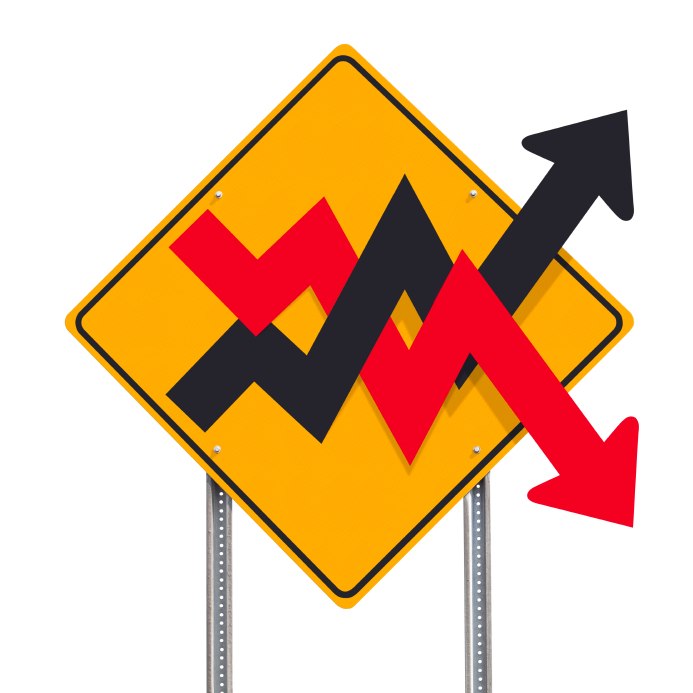Experienced Investor
‘Keep calm and carry on’: five tips for nervous investors

The extremely shaky start to 2016 for global markets will have rattled even the most unflappable investor and left them naturally cautious about what’s coming next.
But despite the extreme volatility caused by concerns over the slowdown in China’s growth rate, the rout in oil, gas and industrial commodity prices, the solvency of European banks and uncertainty around the UK’s forthcoming ‘Brexit’ referendum, the message to long term, committed investors from the experts is to keep calm and carry on investing.
In fact, a common message is that market declines actually open up attractive buying opportunities for long-term investors.
One commentator pushing the ‘stay invested’ advice is Jason Hollands, managing director of Tilney Bestinvest, the wealth management firm.
“For truly long-term investors, it is important not to get blown off course by the short term white noise of weekly market moves but instead to focus on building a robust, well diversified portfolio that will stand the test of time. For those concerned about the sharp swings in markets, a sensible strategy is to drip feed their cash in over a period of weeks or months,” he says.
Here, Hollands shares his tips for investors shaken by the unremittingly bearish headlines about the state of financial markets:
1. Put Absolute Return funds on the agenda
Hollands says absolute return funds should be high up investors’ radars to help reduce overall portfolio volatility. He favours multi-strategy targeted absolute return funds – though a positive return is not guaranteed – such as the Invesco Perpetual Global Targeted Returns. The fund invests across equities, bond markets, currencies and interest rates and provides a diversified “one stop shop” approach.
He also rates the FP Argonaut Absolute Return fund which uses long and short positions in UK and European companies to access money-making opportunities. The ability to “short sell” companies means the fund manager seeks to generate returns from companies that they believe will disappoint, as well as those that will do well.
2. For equity investment consider Europe
Hollands believes there will still be volatility for equities but Europe is his preferred equity market at the moment as the policy environment remains very supportive for shares.
“The European Central Bank has adopted negative interest rates and is already engaged in a QE stimulus programme which it may well accelerate. Furthermore, low energy prices are also a positive for Western Europe, as a net importer of oil and gas,” he says. Threadneedle European Select fund has long been one of his top picks with its fairly defensive style and focus on high quality businesses.
3. In uncertain times back big brands
With the global growth outlook weakening, there’s a strong case for focusing on high quality brands, as these businesses typically command loyalty that can prove resilient through the economic cycle and which provides a high barrier to competition.
Hollands tips the FundSmith Equity fund, managed by Terry Smith as his approach is very much a long term buy-and-hold one. The fund is split between the US, the UK and Europe and offers investors exposure to giant consumer brands like Dr. Pepper Snapple, Pepsico, Imperial Tobacco and Microsoft.
4. Play a defensive game in the UK
The road for UK funds could be rocky with the upcoming ‘Brexit’ vote and this is most likely to be felt in Sterling and in Foreign Direct Investment, Hollands says.
“It is vital to be selective and avoid potential dividend landmines, as dividend cover has weakened in a number of sectors”.
He lists Standard Life UK Equity Income Unconstrained fund and for growth investors and JO Hambro CM UK Opportunities fund which is managed by John Wood. The fund is a concentrated portfolio of 25 very high quality large and mid-cap companies, with predictable and growing cash flow streams.
5. Could Asia / EM be the “wild card”?
Hollands has been particularly cautious on Asia and Emerging Markets because of the slowdown in China but also because of the strengthened dollar.
“Yet we may now be nearing a point where so much negativity is priced in, that these markets could be the ‘wild card’ for 2016, for bargain hunters,” he says.
Investors tempted to make a contrarian call on Asia, might consider Stewart Investors Asia Pacific Leaders, which has very little exposure to mainland China (1.3%) and instead has put its chips on the India table (23%).